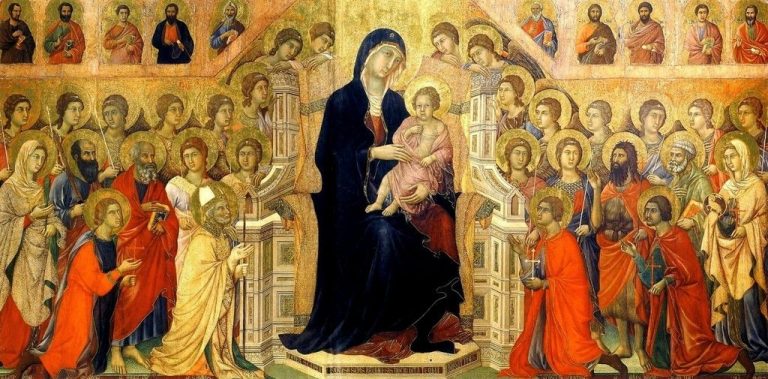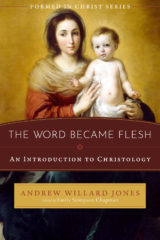By Andrew Willard Jones
Dr. Andrew Jones holds a PhD in Medieval History from Saint Louis University and is an expert on the Church of the High Middle Ages. He is the author of Before Church and State: A Study of Social Order in the Sacramental Kingdom of St. Louis IX and the pioneer of the Formed In Christ series of faith formation texts, as well as the author of several books in this series.
As a Christian, you are called to a personal relationship with God. Protestants tend to say this more often than Catholics, but Catholics believe this as well. Catholics believe that God has invited all of us to a close, intimate relationship with himself, and that he wants us to enter into that relationship now, while we live on earth, although the relationship won’t be perfectly realized until heaven.
But how do you go about having a personal relationship with God? What does it even mean to have a personal relationship with God? What does that look like? The answer to those questions comes to us through the Person of Jesus Christ.
God has revealed himself to humanity by becoming a man himself as Jesus and inviting us to a relationship with him. Our acceptance of that invitation is faith, through which we learn to know God. This knowledge, in turn, moves us to become disciples, which means we live out our faith in our daily lives. Revelation, faith, and discipleship are all linked and come together definitively in the communion of the faithful that we call the Catholic Church.
Ultimately, faith is an encounter with the person of Jesus Christ. Through Jesus, we come to know the Father and the Holy Spirit, and through our faith in him we are formed as disciples and enter into loving relationship with each other. Jesus is at the very center of our relationship with God.
When the Son became a man through the Incarnation, God made his invitation to faith clear: “The time is fulfilled, and the kingdom of God is at hand; repent, and believe in the gospel” (Mark 1:15). The Incarnation completes the message that God had been communicating throughout salvation history. Christ is the fullness of divine Revelation. There is nothing to add because Jesus is “God with us” (Matt 1:23). St. Paul writes:
But when the time had fully come, God sent forth his Son, born of woman, born under the law, to redeem those who were under the law, so that we might receive adoption as sons. And because you are sons, God has sent the Spirit of his Son into our hearts, crying, “Abba! Father!” So through God you are no longer a slave but a son, and if a son then an heir. (Gal 4:4–7)
Get to know God better for who he really is—Father, Son, and Holy Spirit. In Andrew Jones’ The Word Became Flesh, learn about what faith really is, how you’re called to live that faith in a community of believers, and how your relationship with God will prepare you for eternal life.
The Formed in Christ series is a solid and faithful resource that provides a thorough treatment of the Catholic faith and various branches of theology. Whether you're an armchair theologian wanting to fill in the gaps of your religious education or an educator who wants to implement a rigorous and orthodox curriculum, you'll find your answer in the Formed in Christ series.
You Might Also Like

The Formed in Christ series is a solid and faithful resource that provides a thorough treatment of the Catholic faith and the various branches of theology. In The Word Became Flesh: An Introduction to Christology, Andrew Willard Jones draws on Scripture and the Catechism to answer the question of who Jesus is and what this means for us.

